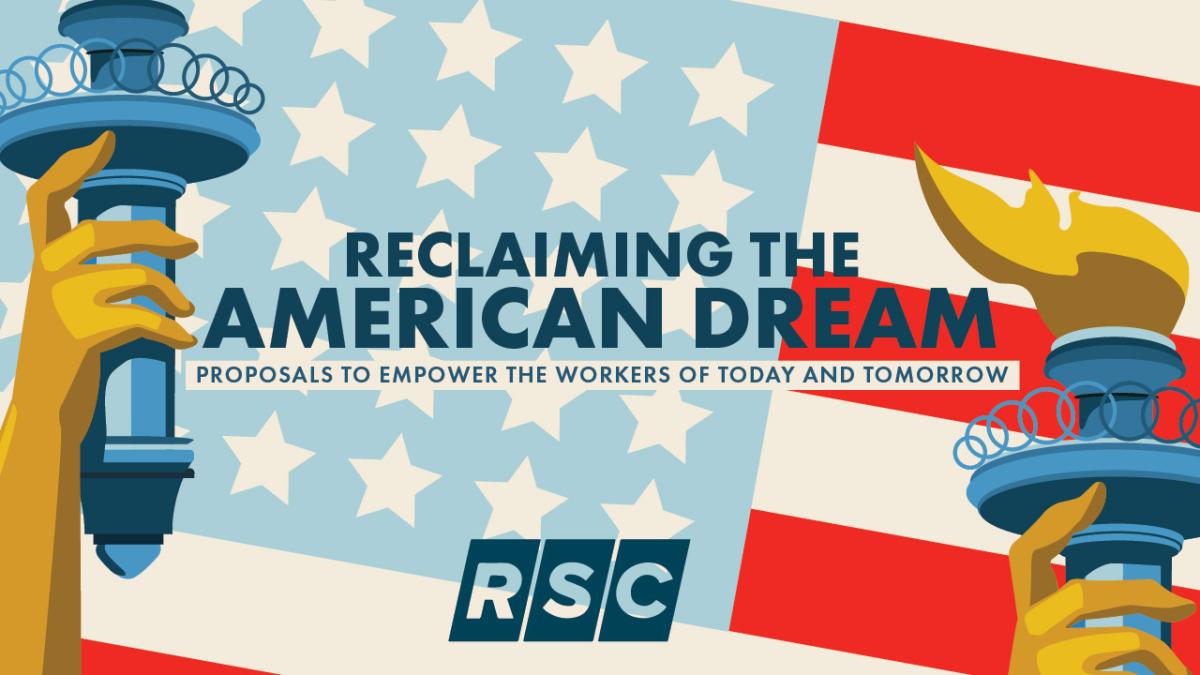Addressing America's Workforce Challenges

As appeared in the October 8, 2020 edition of the Elizabethtown Advocate & Ephrata Review
In Congress, I am a member of the Republican Study Committee (RSC), a group of approximately 200 members who are dedicated to pursuing conservative policy solutions to the challenges facing our nation. This year, the RSC created task forces to advance policy proposals across a number of issue areas. I served as a member of American Worker Task Force which recently published a comprehensive report of more than 100 conservative policies to help workers across our nation ‘Reclaim the American Dream.'
Our proposal would refine our education system to help workers ensure they have the skills they need to advance in their careers by promoting alternate career pathways and emphasizing the importance of career and technical education. As the Republican Leader of the Subcommittee on Higher Education and Workforce Investment, this issue is among my top priorities in Congress. Prior to the COVID-19 pandemic, throughout all of my conversations with area small businesses, the number one challenge they faced was recruiting a talented workforce. As our economy continues to recover and as our workforce grows older, our nation is facing a skilled workforce shortage, which could have profound, negative impacts on the economy.
For too many years, our K-12 education system has been far too focused on pushing students into baccalaureate degree granting institutions. I would never discourage any student from attending a four-year institution, but students need to be made more aware of the alternative but equal opportunities that lead to high-paying family-sustaining jobs. Our Task Force recommends the review and reform of current federal funding support to ensure adequate investment in career and technical education. These programs are an excellent opportunity to gain skills in high-demand occupations, without taking on massive amounts of student debt.
Last week when I discussed the reauthorization of the National Apprenticeship Act, the legislation applied to what is known as the registered apprenticeship model, which is guided by rigid federal standards but it is not the only model to organize apprenticeships. An alternative is the Industry Recognized Apprenticeship Program (IRAP), which if permitted could drastically expand apprenticeship opportunities for individuals across a number of industries.
As I shared last week, many in the private sector do not pursue apprenticeship programs because of the one-size-fits-all federal guidelines. This was true in my own experience as the owner of a small business in the construction industry. IRAPs would help the private sector create apprenticeship programs to fit the needs of their specific industries and workforce.
The Task Force supports, with slight modifications, recent action from President Trump's Administration to support the development of IRAPs. Rather than be wholly controlled by the federal government, IRAPs would allow non-profits, educational institutions, industry organizations, companies or unions to create apprenticeship programs which could be certified by a third-party, rather than the federal government.
These are just two policy proposals that could help expand opportunities for workers to reclaim their American Dream. I am hopeful that these policy proposals will be considered as Congress continues to examine how to address our nation's workforce challenges. To read the full report, please visit my website at Smucker.House.Gov.
Click here to read the Republican Study Committee American Worker Task Force's Report.